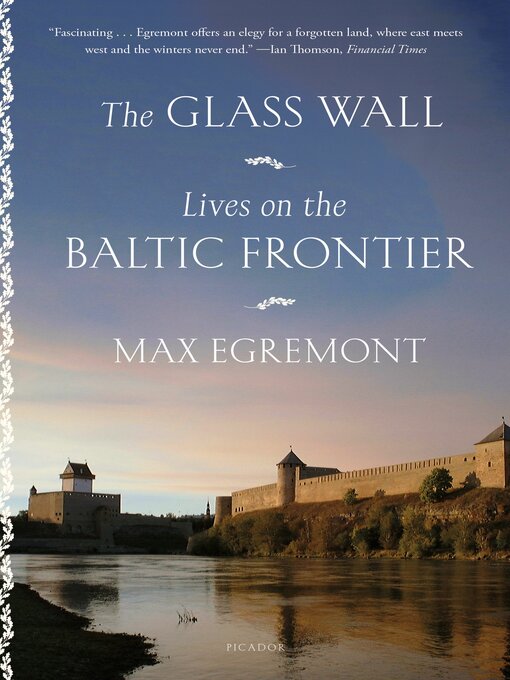Max Egremont, author of Some Desperate Glory, tells stories from the "Glass Wall" between Europe and Asia.
Few countries have suffered more from the convulsions and bloodshed of twentieth-century Europe than those in the eastern Baltic region. Caught between the giants of Germany and Russia, on a route across which armies surged or retreated, small nations like Latvia and Estonia were for centuries the subjects of conquests and domination as foreign colonizers claimed control of the territory and its inhabitants, along with their religion, government, and culture.
The Glass Wall features an extraordinary cast of characters—contemporary and historical, foreign and indigenous—who have lived and fought in the Baltic, western Europe's easternmost stronghold. Too often the destiny of this region has seemed to be to serve as the front line in other people's wars. By telling the stories of warriors and victims, of philosophers and barons, of poets and artists, of rebels and emperors, and of others who lived through years of turmoil and violence, Max Egremont sets forth a brilliant account of a long-overlooked region, on a frontier whose limits may still be in doubt.
- Hot, Hot, Hot eBooks!
- Romance - Available now!
- Thriller Titles - ebooks
- Mysteries - Available now!
- New to Sunflower
- Historical Fiction - Available now!
- Biographies - Available now!
- Inspirational Reading
- Cook Up Something New
- LGBTQ
- See all ebooks collections
- Romance - Available now!
- Audiobooks for the Whole Family
- Juvenile Fiction Audio Books
- Top 100 Available Audiobooks
- Hot off the Press!
- Thriller Titles - Available now!
- Mystery Titles - Available now!
- Science Fiction - Available Now!
- Finish a Book from Leavenworth to Burlington
- Finish a Book from Pittsburg to Goodland
- Finish a Book from Manhattan to Dodge City
- See all audiobooks collections
- Recently Added for Kids
- Belly Laughs
- Crafts and Cooking for Kids
- Kids Picture Books
- Ready to Borrow Audiobooks
- Newly added Beginning Readers
- Read-Alongs
- Most Popular Kids eBooks
- Get Ready For Summer Reading Program
- Hero Up with Super Books!
- Get Out and Play!
- See all kids titles collections
- First Love: YA Romance
- Most Popular Teen eBooks
- Most Popular Teen Audiobooks
- Disponible ahora - Adolescentes!
- #WeNeedDiverseBooks
- Spooky Stories for Teens
- Spring Awakening
- Favorite Teen Reads
- Books to Rule Us All
- See all teen titles collections

